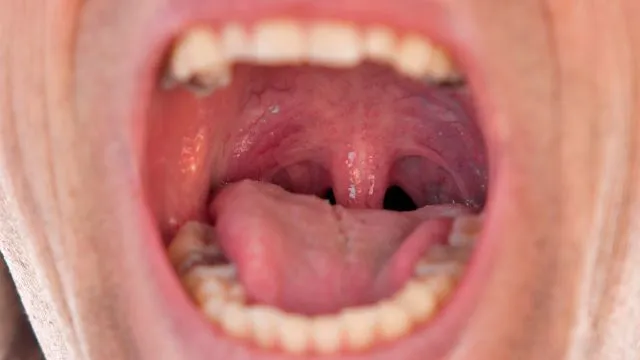Chronic tonsillitis, a nasty inflammation of the tonsils that keeps coming back or just won't go away, is one of those conditions that can really mess with someone's well-being. When conservative treatments prove ineffective, a tonsillectomy surgery, the removal of the tonsils, becomes the beacon of hope for many, offering relief from pain, discomfort, and the risk of complications associated with this condition. And in this all-you-need-to-know guide, we'll be diving into the cost of tonsillectomy surgery in India, shining a light on the stuff that affects the price tag and how it can play a role in a patient's road to recovery. So let’s get down to it then. Shall we?
The cost of a tonsillectomy surgery usually varies between the range of 45,000 rupees to 60 thousand rupees. It can’t be lower than that because the tonsillectomy surgery facility is usually available in bigger cities like Jaipur, Delhi, Mumbai, Kolkata, etc. We have given an amount range because the tonsillectomy surgery cost may vary depending upon a few factors mentioned below:

Tonsillectomy has become a common procedure in India, with many people opting to undergo the surgery to get rid of their pesky tonsil issues. As a daycare procedure, patients usually don't need more than a 1-day hospital stay. However, this can vary based on individual recovery. Let's break down the process and give you a better understanding of what to expect during a tonsillectomy in India.
First things first, the patient will be given either local or general anesthesia to ensure they're comfortable and cooperative throughout the surgery. The choice of anesthesia depends on factors like the patient's age, medical history, and the surgeon's preference. For example, a younger patient might receive general anesthesia to avoid any anxiety or discomfort during the procedure.
Once the patient is sedated, the surgeon uses a specially designed medical instrument to keep the mouth open for the entire treatment. This helps the surgeon access the tonsils easily and ensures a smooth surgical process.
After the tonsils are located, the surgeon will choose from a variety of surgical tools and techniques to remove the swollen tonsils. Picture a painter selecting the perfect brush for their masterpiece, it's quite a similar concept.
Post tonsil removal, the surgeon will use heat treatment to stop any excessive bleeding. This step is crucial to ensure a safe and successful procedure.
There are several methods for tonsil removal, and the surgeon will choose the technique that works best for the patient. Some of the common methods include:
Once the surgery is complete, patients will be guided through proper post-operative care to manage pain, prevent infection, and ensure a smooth recovery. Here are a few practical tips to keep in mind:
All in all, tonsillectomy in India is a straightforward procedure that can bring relief to those struggling with tonsil issues. By understanding the process, anesthesia options, and recovery tips, you'll be better prepared for your own tonsillectomy journey.
Q1. Are There Any Risks Or Complications Associated With Tonsillectomy Surgery?
Ans: Just like any other surgery, tonsillectomy does have its share of risks and possible complications. Some common ones include bleeding, infection, reaction to anesthesia, and breathing difficulties, among others. It's crucial to have a chat with your healthcare provider about these risks before going under the knife, so you're well aware and ready for whatever comes your way.
Q2. How Long Does A Tonsillectomy Procedure Take?
Ans: Well, a standard tonsillectomy surgery typically clocks in at around 30 to 45 minutes. Of course, the exact time can vary based on each patient's unique situation and the surgical method used.
Q3. Are There Any Alternatives To Tonsillectomy Surgery?
Ans: Of course, there are alternatives to tonsillectomy surgery, like antibiotics, corticosteroids, and even making some lifestyle changes. At the end of the day, whether or not you go under the knife depends on how often and severe your tonsil-related issues are, and of course, your healthcare provider's recommendations.
Q4. What Are The Possible Dietary Restrictions After Tonsillectomy Surgery?
Ans: Once you've had a tonsillectomy, it's pretty normal to experience pain and have trouble swallowing. That means you'll need to change up your diet for a bit to help the healing process and minimize discomfort. Stick to soft, cool foods, stay hydrated, and avoid anything spicy, acidic, or crunchy. Simple as that.